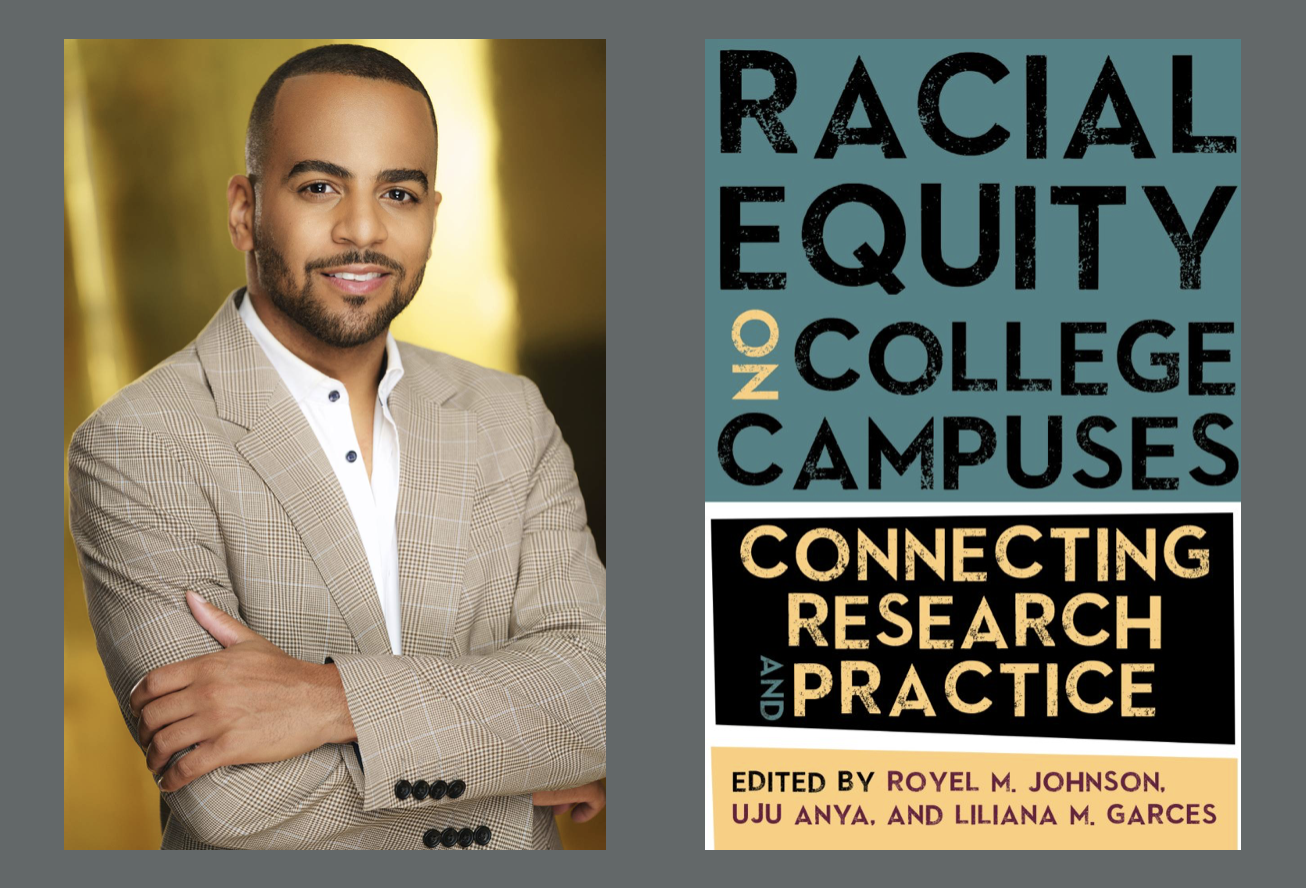By Royel M. Johnson
With support from the Spencer Foundation, my colleagues Liliana Garces, Uju Anya and I, hosted a small national convening at Pennsylvania State University in 2019. The two-day conference, “Envisioning Racial Equity on College Campuses: Bridging Research-to-Practice Gaps for Institutional Transformation” sought to develop strategies for addressing research-to-practice gaps that exist between higher education scholarship and the daily praxis of practitioners.
We brought together 23 racially-diverse educational scholars and practitioners whose expertise spanned the areas of curriculum and instruction, student and campus life, and institutional leadership. Insights from this convening informed the development of my new book with Uju and Liliana, “Racial Equity on College Campuses: Connecting Research and Practice.”
The book provides a roadmap for institutional actors in addressing racial/ethnic inequities within their spheres of influence on campus. We address issues such as racial equity in faculty hiring and governing board decision making as well as institutionalizing support for DACA students.
Chapters in the book are derived from research briefs that were originally submitted by authors for presentation at the conference. Education practitioners were featured prominently throughout the symposium, serving as discussants during scholarly breakout sessions and offering direct feedback to presenters about how their work could be strengthened and tailored to better inform institutional policy and practice. In this way, the chapters benefitted from the direct input from and collaboration with practitioners who “work on the ground.”
We are grateful to Estela Bensimon for writing the foreword, noting, “this book goes beyond simply promoting and arguing for the acceptance of racial equity as a worthy and necessary goal of every higher education institution; it also shows how to do it with authentic scenarios of how race, racism, whiteness, anti-Blackness, and antiracism play out on colleges campuses of all kinds. The authenticity of the scenarios and experiences provided throughout every chapter were made possible by the joint cooperation and authorship of scholars and practitioners—a truly admirable accomplishment for this book.” She adds, “This book shows that partnerships are fruitful when the intellectual power asymmetries that elevate academic production as superior and downgrade knowledge derived from practice as empirically unproven are discarded” (p. 8).
The expressed goals of the 2019 conference were to: (a) identify and explore barriers in translating existing racial equity research to practice; (b) encourage discussion of new areas for research driven by practitioner needs; and (c) foster collaboration between invited scholars and practitioners interested in pursuing new lines of research. My colleague Ali Watts and I share some reflections and takeaways from the conference here.
